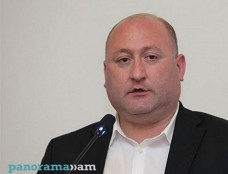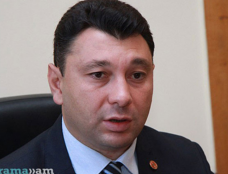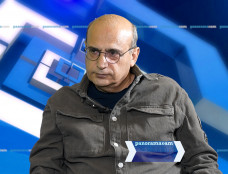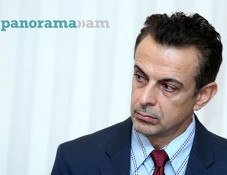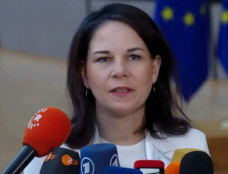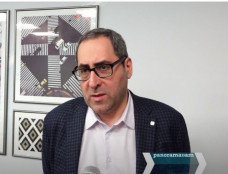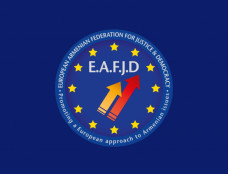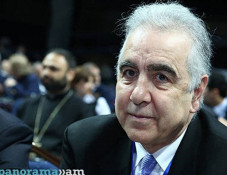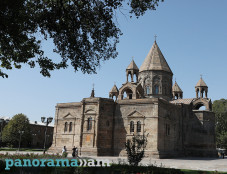Ilham Aliyev rejects basic principles of settlement
Azerbaijani President Ilham Aliyev gave a regular long speech the day before, where besides traditional bellicose statements he selectively commented upon the basic principles considered at the current stage of negotiations on Nagorno Karabakh conflict peaceful settlement.
In general, large quotations do not make an article interesting, but this time we have to give a fragment from Ilham Aliyev’s speech, where he commenting upon the peaceful negotiations in a unique way, in essence, represents Azerbaijan’s position (naturally, trying to create an impression that the whole universe thinks so).
“The issue should be solved on the basis of Helsinki Principles. What are Helsinki Principles? Probably, everybody attending to that issue knows that. The main principle is territorial integrity. There is also principle of self-determination of peoples. However, that principle should not damage country’s territorial integrity, should not contradict it. Peoples’ abilities to self-determination and autonomy should not violate country’s territorial integrity. This is the essence and meaning of Helsinki Principles.
The co-chairing countries submitted proposals developed on that basis, and Azerbaijan accepts them with some exceptions. What are they? I want to repeat it once again. First of all occupation troops are withdrawn from the occupied territories around Nagorno Karabakh. The troops are withdrawn from five regions immediately, and from two regions – Kelbajar and Lachin, a bit later. The proposals envisage five year period.
The reason is that Kelbajar and Lachin regions are between Nagorno Karabakh and Armenia and, in some sense, larger security measures should be undertaken to return Azerbaijani population to those regions. However, all territories, all regions will be returned to Azerbaijan’s control. A road, that is, a corridor will operate between Armenia and Nagorno Karabakh, and Azerbaijan has always agreed to that proposal since it is an important issue, since all security guarantees should be given.
We do not intend to carry out ethnic cleansing policy like Armenians. The Azerbaijani people has never done such a dirty action. Therefore the road between Nagorno Karabakh and Armenia should operate like before, and I think that proposal should be accepted. Security guarantees should be given. Peacekeeping forces should be located on Nagorno Karabakh administrative borders and I think nothing threatens us in this issue, too since security of Azerbaijani citizens to return to currently occupied regions should be also ensured. The peacekeeping forces will carry out that function until all sides assume ensuring security.
The issue of giving a transitional status to Nagorno Karabakh is discussed. That status will not violate Azerbaijan’s territorial integrity. All people who suffered from occupation should return to the homeland. It means that Azerbaijan’s citizens should return to Nagorno Karabakh, Shoushi, what is openly declared in the three co-chairing countries’ last statement. Thus, these democratic principles reflecting international law can become the only variant to solve the problem. I repeat: Azerbaijan accepted these basic principles with some exceptions, and we expect a similar step from Armenia. Though, the information we receive is not so positive. It looks like the Armenian side continues its tactics. That is, they try to drag out the issue as far as possible and to continue the occupation.”
It is obvious that Ilham Aliyev not only misrepresents reality but also represents facts incompletely.
The co-chairing countries mentioned by Aliyev represented a brief list of basic principles both in 2009 in L'Aquila and in 2010 in Muskoka. Every person specialized in the issue and even an ordinary observer could notice that those principles draw a circle, with all pivotal issues regarding the conflict, and, most importantly, the issue of future de jure status of Nagorno Karabakh, fitting into it.
Ilham Heydar oglu Aliyev missed this important “trifle” in his ardent speech. Probably, he pins hopes on his subjects’ illiteracy hoping that they are not able to get information about that fact in English, Russian, Armenian or any other foreign language. However, it is not so important. The most important thing is that after describing what he wishes Ilham Aliyev declares that they are satisfied with it, they accept it “with some exceptions,” moreover, they expect a response from the Armenian side.
In essence, Ilham Aliyev confesses that he does not accept the basic principles of settlement, he rejects them. As it has been repeatedly said about “Prague Process” represented by him – ”Nothing is Agreed until Everything is Agreed.” Thus, one might ask: Mister Heydar oglu, what do you accept while you declare that they are still being discussed? Or how do you accept them while you make an exception? You had better say at once you do not accept them and that’s all.
Summing up the above mentioned we can say that obviously, Ilham Aliyev comments in his own way not only upon the basic principles of Nagorno Karabakh conflict settlement but also upon documents and principles having been the cornerstone of international law for several decades. Probably, coming from the presumption of illiteracy of his own subjects he interprets Helsinki Principles saying that self-determination of peoples should not be at the expense of countries territory. Let us suppose that his opinion about his own people’s knowledge is objective … and where is simple logic? Isn’t there anyone among his people to ask and try to understand that even if the great leader is right, how did it come that Helsinki Principles were adopted in 1975 while Azerbaijan managed to gain independence in the territory of another country (USSR having signed the Helsinki Final Act) in 1991.
Certainly, we could go on and address the assertion on “Azerbaijani people’s nature which never carries out ethnic cleansings,” efforts to remove half a million Armenians who lived in Azerbaijan from the list of refugees after the conflict, etc. However, there is no need to do so; since it is clear as it is that by ignoring others’ rights Ilham Aliyev and Azerbaijani authorities in general do not intend to achieve conflict resolution. So, if they do not, it implies thinking about absolutely different things.
Newsfeed
Videos





